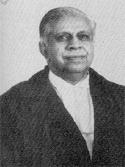
Meet Justice M.N. Venkatachaliah and his Notable Judicial decisions
Justice Manepalli Narayana Rao Venkatachaliah (born 1929) was the 25th Chief Justice of India, serving from February 12, 1993, to October 24, 1994. Renowned for his erudition, integrity, and deep commitment to constitutionalism, he played a pivotal role in shaping Indian jurisprudence during his tenure and beyond. Educated at the University of Mysore and Bangalore University, he began practicing law in 1951, was appointed a permanent judge of the Karnataka High Court in 1975, and elevated to the Supreme Court in 1987.
Judicial Career and Philosophy
Justice Venkatachaliah authored 90 judgments and sat on 482 benches during his Supreme Court tenure. He was admired for his intellectual leadership, pragmatic approach, and efforts to reduce case pendency, which fell to below 19,000 during his time as CJI. His judgments reflected a commitment to human rights, judicial accountability, and the rule of law.
Landmark Judgments
1. Bhopal Gas Leak Case (Union Carbide Corporation v. Union of India, 1991–92)
Justice Venkatachaliah authored the constitutional bench judgment in the aftermath of the Bhopal Gas Tragedy. The Court examined the validity of the settlement between Union Carbide and the Government of India, balancing the urgent need for compensation to victims with the complexities of mass tort litigation. His judgment ensured that the victims’ interests were prioritized, while also addressing the legal and procedural challenges of such unprecedented disasters.
2. Joginder Kumar v. State of UP (1994) – Guidelines for Arrest
In this landmark case, Justice Venkatachaliah set out the first comprehensive guidelines for arrest by the police, emphasizing that no person should be arrested without reasonable justification. The judgment mandated that police must inform the arrested person’s relatives and maintain records, thereby safeguarding personal liberty and curbing arbitrary detention. These guidelines have since become foundational to the protection of individual rights in India.
3. Commitment to Human Rights and Judicial Reform
Beyond individual cases, Justice Venkatachaliah’s tenure was marked by his efforts to make the judiciary more accountable and transparent. He later served as Chairman of the National Human Rights Commission (1996–1998) and led the National Commission to Review the Working of the Constitution in 2000, further cementing his legacy as a reformer and human rights advocate.
Legacy
Justice M.N. Venkatachaliah is remembered as a jurist of rare intellect and vision, whose judgments and reforms strengthened the foundations of Indian democracy and the judiciary. Awarded the Padma Vibhushan in 2004, he continues to be active in public life, advocating for human rights, anti-corruption, and the restoration of national values. His legacy endures in the principles of fairness, accountability, and constitutional supremacy that define modern Indian law.












comments